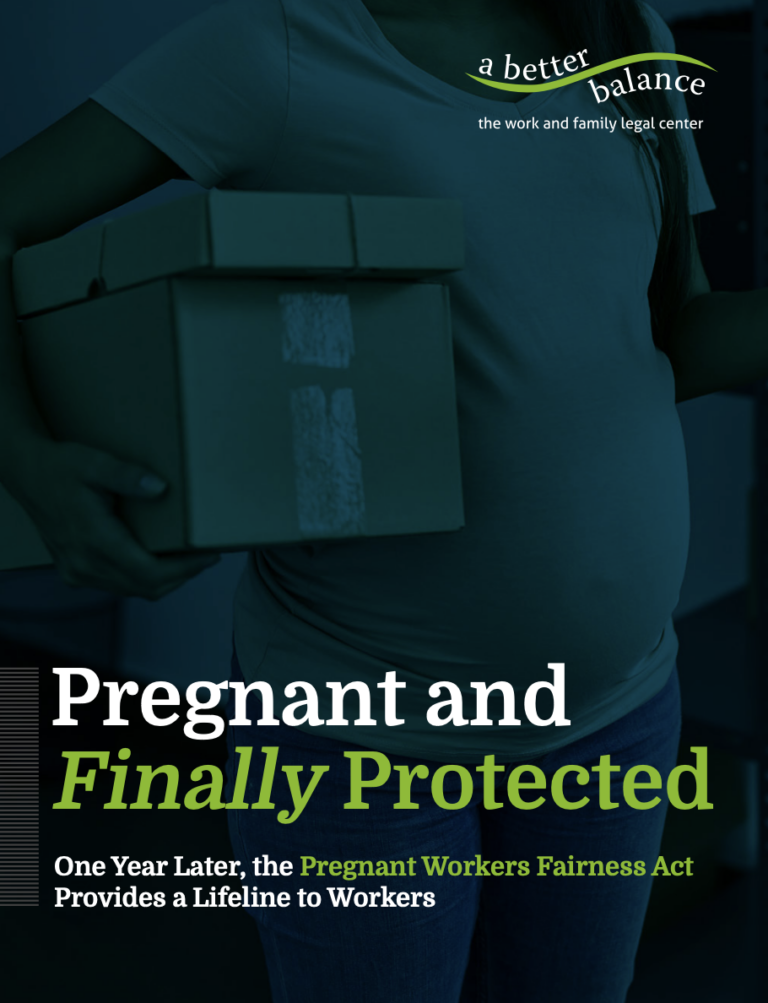Pregnant and Finally Protected
One Year Later, the Pregnant Workers Fairness Act Provides a Lifeline to Workers
Authors: Chelsea Thompson, Dina Bakst, and Elizabeth Gedmark
Published June 2024
Executive Summary
On June 27, 2023, the landmark Pregnant Workers Fairness Act (PWFA) went into effect, bringing long overdue protections to millions of workers affected by pregnancy, childbirth, and related conditions. No longer can pregnant and postpartum workers be forced off the job and denied the temporary accommodations they need to stay healthy and attached to the workforce. A Better Balance launched and led the ten-year movement for the PWFA because we knew, based on our work with scores of expecting and new mothers over the years, mostly those in low-wage and physically demanding jobs, that the status quo was unacceptable. We relentlessly argued since 2012, that federal law was failing pregnant workers and an affirmative right to accommodations—things like light duty, a modified work schedule, and job-protected leave for prenatal visits, bedrest, and recovery from childbirth—was essential to ensuring fairness and equality under the law. Since the law went into effect last year, A Better Balance has been not only been rigorously educating, implementing, enforcing, and defending the law, but also reflecting on the progress made since the law’s effective date, lessons learned for other campaigns, and the vast work ahead.
This report illustrates the powerful impact of the PWFA with profiles of workers whom we have assisted over the past year, compared to those who were unable to rely on the law before passage.
First and foremost, it is clear that the PWFA has made an enormous difference for workers. At ABB, we have heard from nearly 500 workers on our free and confidential legal helpline over the last eleven months, mostly women in low-wage and physically demanding jobs, with specific questions that related to their rights under the PWFA. Thankfully, the vast majority of these workers had clear law on their side. As a result, with our support, workers have been able to use the law to protect their health during pregnancy and after childbirth, and keep their jobs. For many workers with whom we have spoken, the difference between having and not having the PWFA is like night and day. We also know many others have relied on our online tools and resources to self-advocate independently, and countless others are benefitting from the PWFA’s protections in a seamless manner after their employers updated their policies, handbooks, and training materials.
At the same time, without final regulations from the Equal Employment Opportunity Commission (EEOC) in effect for nearly this entire period, the report also highlights common challenges we have seen some workers face accessing accommodations. The report concludes with recommendations for the future to ensure the promise of the PWFA is fully realized.





